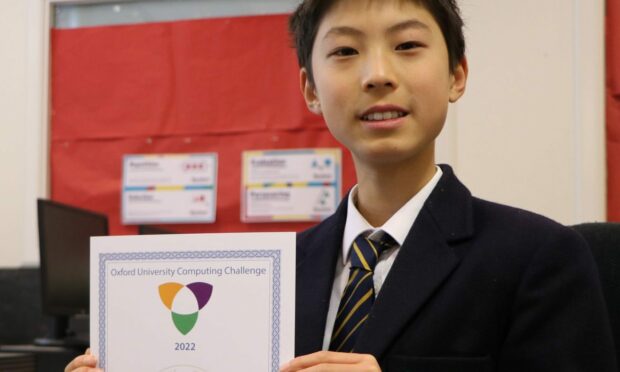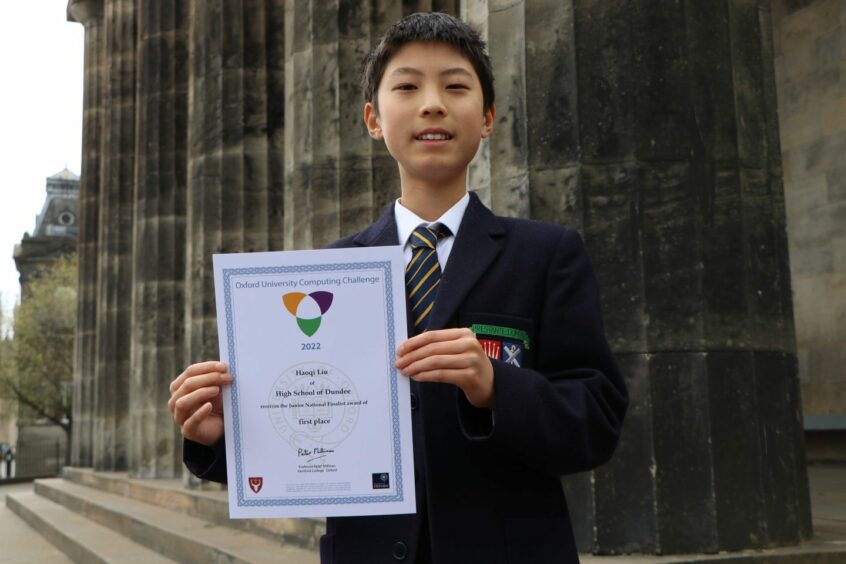A High School of Dundee pupil has won a major UK-wide computing competition.
Haoqi Liu, L7, (P7) has been announced as the winner of the junior category in the national Beaver Challenge.
The competition is an Oxford University-organised problem solving contest which introduces pupils to computer science.
All the challenges were computer-based.
There were 83,500 pupils from schools across the UK, including Dundee High School, who took part in the first round of the junior event.
It featured a series of questions based on problem solving and computational thinking.
Haoqi and 120 others gained full marks in this section.
There were 4,100 entrants who went on to the semi-final which was similar to the first round, but also involved the entrants using programming language.
This saw the pupils using algorithms to solve problems.
As a result, Haoqi shared the top mark with three others.
Haoqi was first, not equal but overall – on his own – which is a fantastic achievement.”
Scott McBride, head of computing science, Dundee High School
Just 20 youngsters qualified for the final, with Haoqi being crowned the overall winner of the junior category in the Beaver Challenge after achieving the best mark.
Scott McBride, head of computing science at the school, said: “Haoqi was first, not equal but overall – on his own – which is a fantastic achievement and one he should be very proud of!”
Over 500 High School of Dundee pupils took part in the computing competition, which is open to pupils from P3 through to S6, with the complexity of the challenge adjusted for the different age categories.
In all, 24 of the school’s pupils made it through to the semi-final stages after achieving gold standard.












Conversation